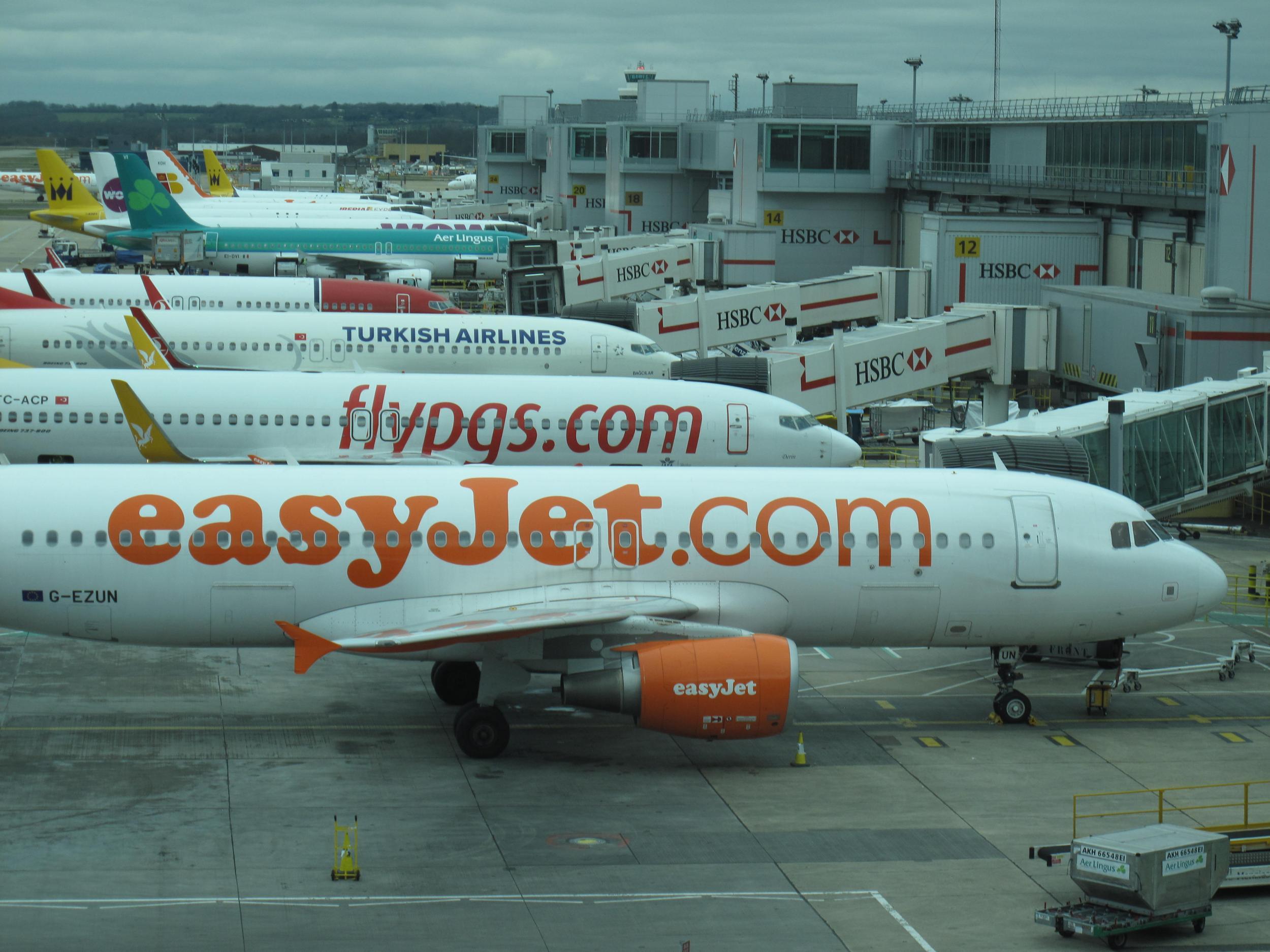Gatwick and easyJet named as Britain’s tardiest airport and airline
One in five flights was over half-an-hour late in the last two summers

Flown easyJet from Gatwick over the past two summers? The chances are your plane took off or landed nearly half-an-hour late.
Britain’s tardiest airlines and airports have been named. In June, July and August 2015 and 2016, passengers flying to or from Gatwick airport departed or arrived an average of 27 minutes late, while travellers on Britain’s biggest budget airline, easyJet, were an average of 24 minutes behind schedule.
The BBC Data Unit analysed Civil Aviation Authority figures on flights to and from UK airports for British and Irish airlines.
Among airlines, Aer Lingus performed best, with an average delay of just 12 minutes, while its giant Irish rival, Ryanair, was 15 minutes behind schedule on average.
The top 20 UK airports for delays (average lateness in minutes)
1 Gatwick 27
2 Luton 24
3 Jersey 21
4 Belfast International 20
5 = Edinburgh 18
5 = Birmingham 18
7 = Manchester 17
7 = Glasgow 17
7 = Stansted 17
10 = Heathrow 16
10 = Bristol 16
10 = Cardiff 16
10 = Doncaster Sheffield 16
10 = Southampton 16
15 = Southend 15
15 = Liverpool
17 Aberdeen 14
18 = Newcastle 13
18 = East Midlands 13
18 = London City 13
Best performing UK airline was Flybe, at 13 minutes. Monarch (15 minutes) and Jet2 (16) were slightly more punctual than their tour-operator rivals, Thomson (17) and Thomas Cook (19).
British Airways was third-tardiest at 18 minutes, though its CityFlyer subsidiary averaged only 14 minutes behind schedule.
Of the biggest airports, the 27-minute average delay at Gatwick was almost matched by Luton, at 24 minutes.
Other big airports performed significantly better: Edinburgh and Birmingham were on 18 minutes, Manchester, Glasgow and Stansted on 17, and Heathrow on 16. Leeds/Bradford and George Best Belfast City shared the honours with an average delay of just 10 minutes.
The summers of 2015 and 2016 were blighted by French air-traffic control strikes, which affected Gatwick and easyJet disproportionately. The Sussex hub is the closest major airport to France, restricting options for avoiding the airspace.
A large proportion of easyJet flights normally pass over France. A spokesperson for the airline said: “Despite a number of adverse external factors like increasingly congested airspace, particularly in the London area, and record numbers of Air Traffic Control strikes, over the last year, easyJet has actually reduced the proportion of flights delayed by more than three hours.
“We work hard to minimise disruption and fully comply with all relevant regulations.”
A spokesperson for Gatwick told the BBC: “We recognise the inconvenience that delays cause to our passengers, and we will continue to do everything possible to prevent them from occurring.
“Gatwick has made it a priority to address punctuality and, in partnership with our airlines and ground handlers, we are already seeing the benefits of a new wide range of measures that have been implemented to improve punctuality.”
Last month, Gatwick’s single runway handled more than 150,000 passengers a day, compared with 243,000 at Heathrow – which has two runways. The Sussex airport is the most efficient in the world in terms of aircraft movements. But there are frequently queues for both departures and arrivals.
When disruption occurs, whether caused by bad weather, a burst tyre on a plane or someone flying a drone, flights tend very quickly to be delayed, diverted or cancelled as the operation unravels.
In terms of resilience, easyJet is in the same predicament as other airlines: how to balance the the provision of spare capacity, with pilots and planes on standby in case things go wrong, with the wish to extract as much revenue as possible while the sun shines.
The 10 biggest airlines ranked by average delay – longest to shortest
easyJet
Thomas Cook
British Airways
Thomson Airways
Jet2.com
Monarch
Ryanair
BA CityFlyer
Flybe
Aer Lingus
The travel industry makes a loss for most of the year, and gets it back (and turns a profit) only in summer, when prices are high.
Many passengers were delayed by less than these figures, but some were seriously behind schedule – with one in five flights leaving more than half-an-hour late.
The figures for summer 2017 are still being recorded. But with passenger numbers, flight movement and, therefore, congestion being at an all-time high, there is unlikely to be a significant improvement.
The Independent has identified the busiest days this summer at key UK holiday airports.
At Gatwick, Sunday 13 August will be the busiest day overall with 168,000 passengers expected to use the Sussex airport.
Manchester airport predicts Friday 18 August to be its busiest day.
Stansted, Luton and Birmingham all predict their busiest days will be Friday 25 August. On that day, 93,000 people – more than the capacity of Wembley Stadium – are expected to fly in and out of Stansted, which is Britain’s biggest single-terminal airport.
Subscribe to Independent Premium to bookmark this article
Want to bookmark your favourite articles and stories to read or reference later? Start your Independent Premium subscription today.

Join our commenting forum
Join thought-provoking conversations, follow other Independent readers and see their replies